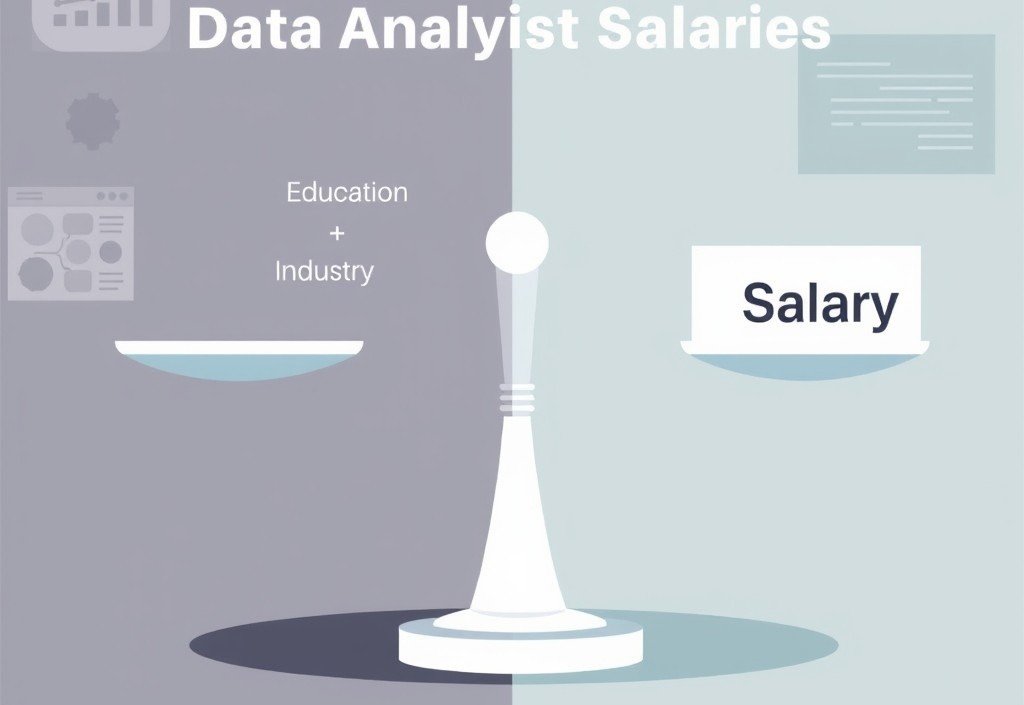Data Analyst Entry Level: What You Can Expect in 2025
Introduction
Data Analyst Entry Level is a topic of growing interest as more professionals transition into data-centric roles in today’s digital economy. With the explosion of big data, companies across industries are seeking skilled data analysts who can extract insights and drive decisions. This article explores the current trends in entry-level data analyst salaries, what factors influence pay, and how to increase your earning potential in 2025.
Understanding the Role of a Data Analyst

Before we break down the salary details, it’s important to understand what a data analyst does. Entry-level data analysts collect, clean, interpret, and visualize data to help organizations make informed decisions. This role often serves as a stepping stone to more advanced positions such as data scientist or analytics manager.
Key Responsibilities:
- Data collection and preprocessing
- Statistical analysis and data modeling
- Creating dashboards and data visualizations
- Reporting findings to business stakeholders
Average Data Analyst Salary Entry Level in 2025

As of 2025, the average entry-level data analyst salary ranges from $55,000 to $75,000 annually in the United States. This range can vary based on several factors such as industry, location, education, and skills.
Salary by Region (U.S.):
- San Francisco, CA: $72,000 – $85,000
- New York City, NY: $68,000 – $80,000
- Austin, TX: $60,000 – $70,000
- Atlanta, GA: $58,000 – $68,000
- Remote roles: $55,000 – $70,000
Global Comparison:
- UK: £28,000 – £35,000
- Canada: CA$50,000 – CA$65,000
- India: ₹4.5L – ₹7L per annum
- Australia: AU$60,000 – AU$75,000
Factors Influencing Entry-Level Data Analyst Salary

1. Education and Certification
A degree in data science, statistics, or computer science boosts your starting salary. Certifications like Google Data Analytics, Tableau, or Microsoft Power BI can add significant value.
2. Skills and Tools
Proficiency in tools like Excel, SQL, Python, R, Tableau, and Power BI increases your marketability and salary potential.
3. Industry of Employment
Industries like tech, finance, and healthcare tend to offer higher starting salaries compared to education or non-profit sectors.
4. Internship or Project Experience
Hands-on experience with real-world datasets during internships or academic projects can give you a salary advantage over other entry-level candidates.
5. Location and Company Size
Tech hubs and Fortune 500 companies usually pay more due to higher living costs and bigger budgets.
Skills That Boost Entry-Level Salaries

Employers are actively looking for candidates with a blend of technical and soft skills. Mastering the following can help you command a higher starting salary:
- SQL for database querying
- Python/R for statistical analysis
- Tableau/Power BI for data visualization
- Excel for quick calculations and dashboards
- Business communication for reporting insights effectively
- Critical thinking and problem-solving
Career Growth Opportunities from Entry-Level Positions
Starting as a data analyst opens up various career paths:
- Senior Data Analyst ($85K–$110K)
- Data Scientist ($100K–$130K)
- Business Intelligence Analyst ($90K–$115K)
- Analytics Manager ($110K–$150K)
With 2–3 years of experience, many data analysts double their salary and transition into leadership or niche roles.
How to Increase Your Entry-Level Salary

1. Upskill Continuously
Keep learning new tools and trends in data analytics—this keeps your skill set relevant and competitive.
2. Build a Portfolio
Showcase your work through a GitHub repository or a personal website to attract employers and justify higher salary requests.
3. Network Strategically
Use LinkedIn, forums, and meetups to connect with professionals and uncover higher-paying job opportunities.
4. Prepare for Interviews
Being able to explain your projects, coding challenges, and problem-solving approach can help you negotiate better offers.
Conclusion
The Data Analyst Entry Level in 2025 reflects the rising importance of data-driven decision-making in every industry. While salaries vary depending on location, skills, and experience, the overall trend is upward. With the right blend of education, tools, and real-world experience, aspiring data analysts can not only enter the job market with competitive pay but also carve out a successful long-term career path in analytics.
FAQ’s
1. What does a data analyst do?
A data analyst collects, processes, and analyzes data to help businesses make informed decisions. They use tools like Excel, SQL, and Python to interpret trends and patterns.
2. What qualifications do I need to be a data analyst?
Typically, a bachelor’s degree in statistics, computer science, or a related field is required. Skills in data tools and programming languages like SQL, Python, and Excel are essential.
3. Is data analyst pay good?
Yes, data analyst salaries are generally competitive, especially in tech, finance, and healthcare. Entry-level roles often start around $60K–$80K annually, with potential for growth.
4. Can I make 200K as a data analyst?
Yes, it’s possible at senior levels or in high-paying industries like tech or consulting. It often requires experience, specialization, and sometimes transitioning into data science or analytics leadership.
5. Is data analyst a lot of math?
Data analysis involves some math, mainly statistics and probability. However, it focuses more on interpreting data patterns than doing complex equations daily.

